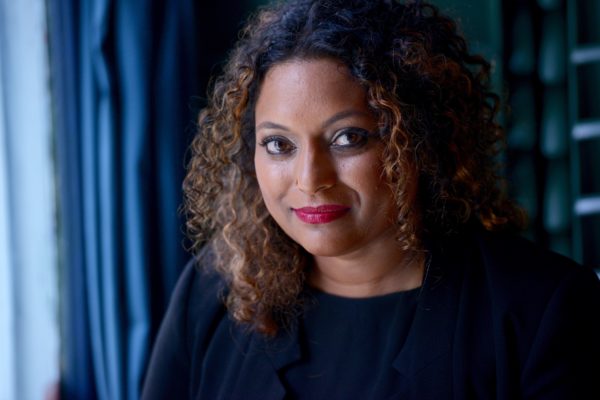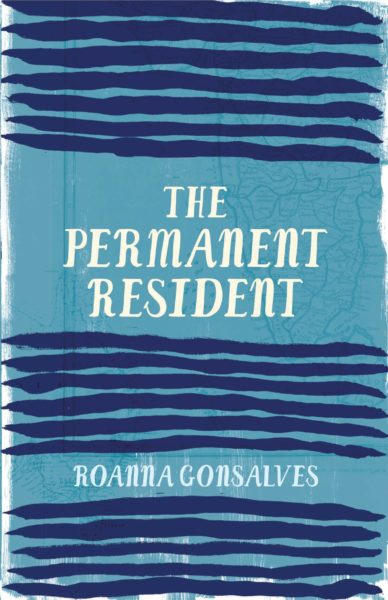Each month we shine a spotlight on a member of our community to learn more about their writing journey, achievements, and inspirations. This month we spoke to Roanna Gonsalves, author of the acclaimed short story collection The Permanent Resident (UWAP), which won the NSW Premier’s Literary Award Multicultural Prize 2018 and was longlisted for the Dobbie Literary Award 2018.

Roanna was born and raised in Mumbai, India. She came to Australia as an international student in 1998. She was a UNSW Copyright Agency Writer-in-Residence in 2018, and has won a number of awards including the Prime Minister’s Australia Asia Endeavour Award. She has facilitated creative writing workshops in communities, schools, and universities over many years.
Our Membership & Development Intern, Alexander Wells, spoke with Roanna about the power of short stories, the ‘literary selfie’, and the benefits of teaching.
Congratulations on the success of The Permanent Resident, for which you won the NSW Premier’s Literary Award Multicultural Prize. How did you celebrate the news?
Thank you so much! I was very thrilled to be on the shortlist amongst some very fine writers, and even more thrilled and humbled to be awarded the prize. I celebrated by thanking the stars and the gods for the good fortune of belonging to a literary community that supports writers like me and values the work that we do.
Tell us a little about the collection.

The Permanent Resident is a collection of short stories about being an outsider, and about experiencing Australia from the periphery, from the out-group, so to speak. It is set amongst various Indian communities in Australia. I have tried to explore the evolving spectrum of immigrant experiences, the relief and wonder as well as the violence experienced by outsiders, moments of deep tragedy as well as moments that lend themselves to satire, to comedy.
What drew you to the short story form for this project?
I wanted to document and record as many varied experiences of being an outsider as I possibly could. I feel the short story form is perfect for exploring this multiplicity. As I’ve said elsewhere (pardon the repetition), for me, the short story form demands a respect for the limitations of time and space, and enables a focus on the particular, the intimate, and the fleeting. It offers a set of sharp literary tools with which to sculpt complex immigrant experiences and render them economically on the page.
You’ve written on the power of the ‘selfie’ as a liberating form of self-expression – especially for the marginalised. To what degree is The Permanent Resident a kind of selfie?
To me, there is nothing more powerful than having the opportunity to represent yourself in a way of your own choosing, without relying on others to represent you. This is what a selfie does. It gives us the opportunity and the tools to represent ourselves. I think this is what we can take away from visual culture to think about how we self-represent in literary culture. I’ve written about this in Overland and in The Conversation. My book is not autobiographical, it’s a work of the imagination, but yes I would call it a literary selfie, in the sense that it is written by someone representing themselves and the communities they belong to, in fiction.
As an academic at UNSW and a leader of many workshops, do you find that teaching informs your own practice as a writer?
Oh yes, absolutely. I learn as much if not more from my students as I teach them. Teaching helps clarify my ideas about writing practice, demands that I educate myself about the work of other writers. It gives me a peek into the imaginative worlds of my students. I become a temporary custodian of their fears and dreams and preoccupations. I feel privileged to have had opportunities to be in this position.
You have spent some time at Varuna the Writers House, including a fellowship there in 2011. How has Varuna helped you work on your projects and develop as a writer?
I have been to Varuna a number of times over almost two decades. The combination of solitude, companionship over dinner, and the presence of literary history and the legacy of Eleanor Dark in the bricks and mortar of the house makes Varuna a unique place. I’ve written many thousands of words there, some of which have found their way into The Permanent Resident. I’ve formed friendships with other writers there. Varuna and all it stands for, all it upholds, have been crucial to my development as a writer.
Are there any short story writers that you particularly admire, and whose work has influenced you in a meaningful way?
I admire the work of many contemporary Australian short story writers, such as Cate Kennedy, Tony Birch, Ellen Van Neerven, Rashida Murphy, Susan Midalia, Melanie Cheng, Ryan O’Neill, Julie Koh, Fiona McFarlane, Elizabeth Tan, Rebekah Clarkson, Andy Kissane, Julia Prendergast, Tom Cho, Nam Le, Tegan Bennett Daylight, for the sheer depth of skill and perspectives of what it is like to experience the world today in Australia and beyond, as represented in their work.
I love the work of the Indian writer Ambai for her cheeky and brave rendering of the female gaze upon the male body, the work of the Japanese writer Ryūnosuke Akutagawa for his playfulness with perspective, and the work of the Canadian writer Alice Munro for her brilliant control of words and sentences to create tension and beauty on the page.
Your next project is a book of historical fiction based on the relationship between Governor Lachlan Macquarie and his Indian servant. What drew you to this topic, and how did you discover the story?
I discovered this story purely by accident, from trawling through the internet for a different project almost a decade ago. While looking at the Australian Dictionary of Biography, I came across the work of Robin Walsh who has put in a lot of meticulous labour to uncover the biographical details of Governor Macquarie’s servant. In some senses, the story came to me.
What does your regular writing routine look like?
I try and write every day, and I read as much as I can. I find that reading poetry helps me unshackle myself from the banality and opacity of reality and immerse myself in a more diaphanous and fluid thinking space.
Any words of advice for aspiring fiction writers?
Read and write as much as you can. Read poetry. Buy Australian books.
***
Join Roanna Gonsalves on Saturday 6 April 2019, 10am-4pm, for her short story course, Rewilding the Short Story.
Learn more about Roanna at roannagonsalves.com.au and follow her on Twitter @roannagonsalves.
